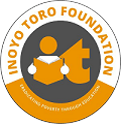
Let’s begin by asking the question: Who qualifies as a mentor? Being educated, having a vocation or profession and being generally successful are essential to role modelling. But there is more to it: interest, passion for education, and a willingness to inspire and help the mentees improve.
We thank you for adopting a school for mentorship. As you know, Nigerian Secondary School runs a six-year system of three years each for the Junior Secondary School and the Senior Secondary School. The students’ ages typically range between 12-14 and 16-19. Under the Foundation program, students eligible for mentorship are the best in each class, from JSS1-SSS 6.
It is, therefore, crucial that mentors consider this and be prepared to engage appropriately. Additionally, given that many students are from public schools in less urban communities, the method of interaction should promote inclusion. This guide is, therefore, developed to assist the mentor in their interaction with the students.
Start by introducing yourself. Please keep it simple, as going deep into your qualifications and achievements may not be appropriate initially. The most essential thing in the opening few minutes is getting the students’ attention. You may begin by sharing an exciting story about life as a secondary student, your dormitory (if in a boarding school), sports, friends, and teachers.
Find an icebreaker about any challenging encounter while growing up, whether at school or home and share. We recognize the struggles of most teenagers, and you may be the one that can help resolve these issues. Ensure your account is honest and relatable to the students.
Invite each person to react to your icebreaker. There should be no pressure if they are reluctant to do so. Initiate by asking open-ended questions and being culturally sensitive.
Ask each person to share something similar about his/herself. Watch out for areas that may require you to interject politely.
Now, it is time to unveil the mentor. Share your journey to success. How did you get to where you are today? What challenges are you still facing, and how are you overcoming them?
Invite the students to ask you questions or make comments about your life journey. Ensure that each student participates.
Since there would likely be a teacher or the school principal in attendance, watch out for any signs inhibiting a free flow of discussion. You may politely ask the official to recuse his/herself for a few minutes.
What do you want the students to take away from your engagement? Be sure to weave these around your conversation.
Emphasize the importance of Character, Hard Work and Discipline.
Share tips on how to tackle complex subjects or situations.
Encourage them to set personal goals. Provide examples.
Do not be afraid to remind them that the road will be rough, but they must persevere.
Touch on the impact of social media, FOMO (fear of missing out), peer pressure, bandwagon mentality, etc.
Ask them to share with you something they would do if there were no barriers (give examples of those barriers (financial, social, gender, etc.)
Request that they write down a minimum of 2 and a maximum of 5 things they will do differently in the future based on their session with you.
What will make any of the students feel free to re-engage with you? How would they think of you five years from now? Consider these in your closing remarks. Share any next steps, and if you want the students to contact you, provide your contact details.
Thanks for being a mentor.
Adopt a school today! Our mentoring program